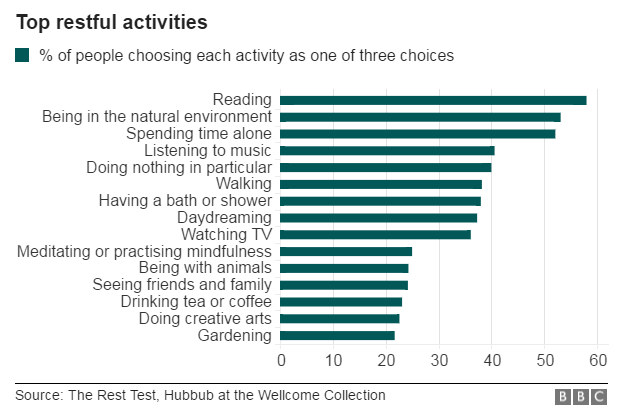Guest post by @ailindigo: The importance of loneliness or learning to be alone
Much is said that human beings are social beings, it is true. We are "social animals", we are beings that need approval and love from others. Because we live in a frenzied, hyper-connectivity and hyperactivity period where the modern condition is mobility, always being busy doing something, being productive or, in short, living in a frenzy, we have been culturally taught that loneliness is something that you should avoid, hide from it; We have instilled a fear of it because it is associated with various negative qualities, such as depression, madness, bitterness or social defeat because they are possible consequences of being alone. We shy away from solitude because it simply confronts us with a great responsibility that we should have as human beings that we are and it is self-knowing, because we have lost the habit of being "face to face" with ourselves.

Photography by sedaFB
We live in the era of digital connectivity, where millions of people have a profile on Facebook or Twitter, where for many it is crucial to check Instagram religiously every day and so many other services that are waiting anxiously for you to take advantage of them in order to "connect" with the rest of the world. A time where due to all this connectivity, loneliness happens to be underestimated and worth less than ever, where it is important to be connected at all times with someone while that someone is not yourself.
Loneliness can be something delicious in a very exquisite way or a disturbing bitterness, it is linked with transcendental experiences in many mystical traditions, but it can also transform a person into an intolerant or even a neurotic being. As always, the key is balance. It is necessary to spend time alone to have a healthy mind, because at some point we will have to learn to deal with ourselves and love ourselves, and this can be translated into learning not only to coexist with our fears but also with the best that is within us and maybe we do not know.
Now, why are we so afraid of being alone? When there are no constant distractions and we find ourselves in a moment of loneliness, the voice of our mind inevitably appears and this implies feeling what arises from the moment, sometimes in moments of loneliness is when the pain of an experience from the past may arise, an experience we had been blocking, then we feel more. It also happens that due to social pressures we may suffer from an addiction to belonging, to not be forgotten or displaced by another within a social group, such as when we were teenagers and we felt the need to constantly make a presence, so as not to leave the play within the struggle for a place in the social pyramid, and that is why in a certain way we feel the need to interact constantly and not be alone. Boredom can also be another reason why we dislike loneliness, which is contradictory because one can become more authentic the longer one enjoys oneself, and even others enjoy time with you more. The character of Death in the book Hogfather by Terry Pratchett said "Human beings make life so interesting. Do you know that in a universe so full of wonders, they have managed to invent boredom?"
It also happens that many people think that when they get used to being alone they could become less tolerant with the defects of others, this can happen when what we want is to isolate ourselves almost completely, if what we want is to spend time alone we will do it in a more balanced way, which implies having spaces to socialize and share as well. Another aspect is depression, always so commonly related to loneliness, probably someone who seeks to isolate himself too much is already depressed, spending time alone does not mean isolating oneself, but rather learning to know and enjoy oneself, to explore oneself. We also have that solitude propitiates moments of reflection and it is in these moments in which the deepest thoughts can reach us, moments in which life acquires another nuance by understanding that we never stop learning.

Digital Art by RobertoGatto
Ernest Hemingway.
Historically loneliness has been associated with spiritual development, characters such as Buddha or Christ, among others, obtained crucial revelations in circumstances like these. It is even said that solitude is a fertile ground in which creativity or genius can flourish, and perhaps this is why writers, philosophers, scientists and other important figures such as Poe, Bacon, Goethe, Thoreau, Beethoven or Einstein and many others have greatly praised loneliness. The American writer Don DeLillo said that "A writer takes earnest measures to secure his solitude and then finds endless ways to squander it."
There is an image of the solitary genius that is very well known; within literature, philosophy or cinema we find many examples of very intelligent people who possess the shared feature of loneliness, as if they found what was necessary to create great works only by being alone, a voluntary and pleasant isolation. To explain this, there is a study that explores the relationship between loneliness and intelligence, from the perspective of evolutionary psychology, published in the British Journal of Psychology and which was conducted by researchers Norman Li and Satoshi Kanazawa; these researchers relied on "the savanna theory of happiness" which dates back to the Pleistocene period (period in which towards the end, our most direct ancestor was Homo Sapiens) the origin of the feeling of satisfaction for life, according to this theory during this period the human brain evolved to inherit the reactions that our ancestors had before certain situations of their life, and that despite having supposed an advantage it also derived in a partial difficulty to understand their own present fully.
Then, the satisfaction for life is the result of inheritance and the possibility of understanding the current present that the individual lives, and it is from this premise that the researchers analyzed information of more than 15 thousand young people between 18 and 28 years old, collected in the National Longitudinal Study of Adolescent Health of the United States; Psychologists collected statistics in relation to health, intelligence, satisfaction and well-being. It was noted at the beginning that, in general, being in the midst of large concentrations of people led to feelings of unhappiness but socializing with a few friends led to satisfying emotions. However, there was one exception: there was a minority that socializing caused them unhappiness, even with friends, and it so happens that this minority was the data which was more intelligent than the average of the population. According to the researchers, due to their very intelligence these individuals differ from the rest because they tend to do things "out of nature", which under "the savanna theory of happiness" means that they seek to do what their ancestors did not do, that is, not finding happiness in the contact with friends, for example.
There are several studies that confirm the series of benefits that loneliness can bring to us. There are certain exercises and activities that are performed with better results in solitude, especially on the psychological and emotional level. According to a study by Harvard University, an occasional dose of solitude is necessary to consolidate the process by which we secure our memories (making them more precise or lasting) and another study suggests that we can develop empathy through the practice of loneliness.
Adam Waytz, from Harvard University, in his research emphasizes that in solitude we reaffirm different skills that will enrich our ability to establish strong and healthy social ties, however paradoxical it may sound; and this can lead us to suppose that if solitude helps us to know ourselves, it will also bring us more into the dynamics of social interaction.
According to Eric Klinenberg, a sociologist at the University of New York and author of the book Alone in America: "In our country (United States) there’s so much cultural anxiety about isolation in our country that we often fail to appreciate the benefits of solitude. There is something very liberating for people about being on their own. They’re able to establish some control over the way they spend their time. They’re able to decompress at the end of a busy day in a city...and experience a feeling of freedom”
Another benefit of loneliness is the strengthening of character and identity, one of the premises addressed by Sherry Turkle in her book Alone Together. Turkle, who heads the Initiative on Technology and Self, suggests that we not only reserve ourselves away from other people during certain times of the day but also from digital interactions, as a tribute to what could be considered the primal state of the human being. It is contradictory that while we spend all our time "in touch" with the world, thanks to social networks and other digital resources, some analysts point out that we live deeply isolated. There is a study conducted by the BBC and Hubbub which found that the decisive factor to really rest is to spend time alone. The responsible researchers came to this conclusion after designing a questionnaire about the "subjective experiences of rest" when receiving responses from 18 thousand people from 134 countries for 1 year, for which the most favorable rest activities are:

Source
"Spending time alone" is number three in the classification, but it was the first answer for people under 30 years of age. The researchers also noted that loneliness is remarkably associated with rest, to the point that activities such as drinking socially or seeing friends were far below their preferences. Without a doubt, a somewhat paradoxical choice.
We live in a stage of communications that seem to force us to the company, not only face to face but also virtual, and being alone and feeling good is an art. True solitude implies reflection and many shy away from solitude because it implies that, reflecting, being with oneself and knowing oneself. Loneliness is the most natural human exercise within our reach, it is in solitude when we experience the most substantial battles and the most comforting tranquility, where we manage to cultivate the most nutritious states for the spirit and the mind. An activity that if practiced healthily is a vehicle of transcendence. We are forced to self-reveal without intermediaries, to confront ourselves. Loneliness is a mirror (Borges said "I am alone and there is no one in the mirror"), one that invites us to draw, take advantage, enjoy and reflect all the benefits it has. And this is where the importance of learning to be alone lies. Is it not in solitude where we are ourselves the most?
One day an interviewer asked Tarkovsky who was sitting on a tree placidly (probably practicing the art of solitude if not for the interviewer and his camera) "What would you like to tell young people?" to which the Russian filmmaker replied:
“I don’t know… I think I’d like to say only that they should learn to be alone and try to spend as much time as possible by themselves. I think one of the faults of young people today is that they try to come together around events that are noisy, almost aggressive at times. This desire to be together in order to not feel alone is an unfortunate symptom, in my opinion. Every person needs to learn from childhood how to spend time with oneself. That doesn’t mean he should be lonely, but that he shouldn’t grow bored with himself because people who grow bored in their own company seem to me in danger, from a self-esteem point of view.”
Who are you when no one is watching?
This content is a manual translation of an article of mine that was originally in spanish and posted 6 months ago on my blog. I wanted to share it with the english-speaking community through this opportunity. This translation was made by myself @ailindigo, the original author, and you can read the post in spanish here.

To listen to the audio version of this article click on the play image.

Brought to you by @tts. If you find it useful please consider upvoting this reply.
Can be have hundreds of friends and under this be lonely! Good post!

I upvoted your post.
Best regards,
@Council
Posted using https://Steeming.com condenser site.